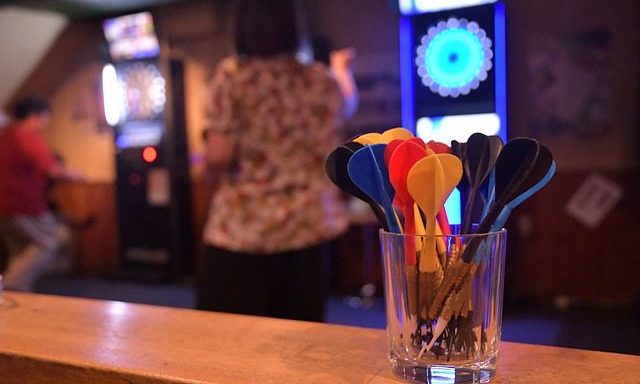Gen Zs prefer entertainment games over pub visits, Mintel finds
However, there is substantial interest for newer, more innovative options such as axe throwing (19%), racing car simulators (22%) and social cricket (10%) as well

Register to get 1 free article
Reveal the article below by registering for our email newsletter.
Want unlimited access? View Plans
Already have an account? Sign in
New research from Mintel has found that people in Generation Z prefer competitive social entertainment games like axe throwing or table football over pub visits.
The latest research shows that almost two thirds (64%) of Gen Zs have played a social entertainment game in the last month, compared with three in five (60%) who have been to the pub for a drink.
Overall, participation in competitive socialising activities has increased by 13% between 2019 and 2023.
Around seven in 10 (71%) consumers now say they have taken part in a competitive socialising activity, compared with 58% in 2019.
Young consumers lead the way, with as many as 93% of Gen Zs having taken part in competitive socialising, compared to just 60% of Baby Boomers (aged 59-77).
Traditional activities are set to remain firm favourites, as over the next year, half (51%) of consumers say they are interested in taking part in bowling, and a further 41% say they are interested in playing crazy golf.
However, there is substantial interest for newer, more innovative options such as axe throwing (19%), racing car simulators (22%) and social cricket (10%) as well.
Jennie Bryans, travel and leisure research analyst, Mintel Reports UK, said: “As more Gen Zs come of age, their preference for sober-curious living is altering how consumers socialise. This is driving demand for new and varied activities that provide a sense of adrenaline, but don’t necessarily involve consuming alcohol.
“However, the ONS predicts that by 2026, some 40% of the UK’s population will be over-55s, signalling that operators have two key demographics to consider. On the one hand, operators need to focus on attracting a younger crowd of Gen Zs during peak evening and weekend periods, whilst on the other hand, brands should also tailor activities towards older consumers’ interests during off-peak hours, when retired consumers are free to participate.”
She added: “At the other end of the scale, ‘gastro-gaming’ has the potential to perform well within the premium sector; brands can attract a new range of clientele who are interested in watching but not taking part in activities, whilst also enjoying a high-quality meal.”







